Appointment
When it comes to enhancing your smile, choosing the right cosmetic dental treatment can feel overwhelming. Should you opt for dental bonding or veneers?
Both options offer unique benefits, but the decision isn't always clear-cut. This Al Care Dental guide will walk you through the essential details of bonding vs. veneers, helping you make an informed choice.
Understanding the basics is the first step. Bonding and veneers aim to improve and enhance the teeth’s appearance, but they do so in different ways.
Dental bonding is a treatment that involves applying a tooth-colored resin to your teeth. The resin is sculpted and polished to mimic your natural teeth, making it a suitable choice for minor cosmetic concerns.
Conversely, veneers are thin shells made of porcelain or composite material that cover the entire front surface of the teeth. They are custom-made to fit your teeth perfectly, providing a more comprehensive aesthetic solution.
Before we explore the differences, it's worth noting what these treatments have in common. Both bonding and veneers aim to enhance and improve your smile by addressing issues such as discoloration, chipped teeth, and gaps.
They are both popular choices in cosmetic dentistry for their ability to deliver quick and noticeable results.
Now, let's get into the nitty-gritty. While bonding and veneers might seem similar on the surface, they differ in several key areas.
Veneers typically offer a more natural and uniform appearance compared to bonding. The porcelain used in veneers closely mimics the translucency of natural teeth, making them nearly indistinguishable from your original smile.
When it comes to durability, veneers take the lead. Porcelain veneers can last 10 to 15 years or more, whereas bonding usually lasts around 4 to 8 years. This difference in lifespan is due to the materials used and their resistance to staining and wear.
Cost is a major consideration for many patients. Dental bonding is typically more economical than veneers. However, it's important to factor in long-term value, as veneers may require less maintenance over time.
Bonding typically requires just one dental appointment, offering a quick and convenient solution. Veneers, however, usually require multiple appointments—one for taking impressions and another for the application.
One of the main distinctions between bonding and veneers is reversibility. Bonding is a minimally invasive treatmentthat can be easily altered or reversed if needed. Veneers, however, require the removal of a thin layer of enamel from your teeth, making them a more permanent solution.
Post-treatment sensitivity is common with both bonding and veneers, but veneers might cause slightly more sensitivity due to the enamel removal process. This sensitivity typically subsides within a few days to a couple of weeks.
While both bonding and veneers require upkeep, veneers are generally more stain-resistant and less likely to need frequent touch-ups than bonding.
Let's take a closer look at dental bonding—its uses, benefits, and drawbacks.
Dental bonding is often recommended for minor cosmetic issues such as small chips, gaps, or discoloration. It's also a great option if you're looking for a quick and affordable way to improve your smile.
Understanding the bonding process can help you feel more comfortable with the treatment.
The initial phase of dental bonding is choosing a resin hue that closely resembles the shade of your natural teeth. Your Al Care Dental dentist will then roughen the surface of your tooth and apply a conditioning liquid to help the bonding material adhere better.
Next, the resin material is applied to your tooth and molded into the desired shape. The dentist will then employ a specific light to cure the resin, securely attaching it to the tooth.
Finally, the bonded tooth is shaped and polished to match the rest of your smile, ensuring a seamless and natural look.
Now, let's shift our focus to dental veneers—a more comprehensive solution for those looking to achieve a flawless smile.
Veneers are often recommended for more significant cosmetic concerns, such as severely discolored or misaligned teeth. They are also a popular choice for those seeking a dramatic smile makeover.
Veneers come in different materials, each offering unique benefits.
Composite veneers, composed of resin, are a more budget-friendly alternative to porcelain veneers. They offer a faster treatment time as they can be applied directly to the teeth in a single appointment.
Porcelain veneers, on the other hand, are custom-made in a dental lab and require multiple visits to complete. They are more resistant to wear and tear and stains. Dental veneers offer a longer-lasting solution.
The process of getting veneers is more involved than bonding, but the results are often worth the extra effort.
To prepare your teeth for the veneers, your dentist will carefully remove a thin layer of enamel from the tooth surfaces. This is essential for a secure and natural-looking fit.
After the veneers are prepared, your dentist will carefully position them onto your teeth, ensuring a precise fit and desired appearance. A special bonding agent is applied and cured with a light to securely attach the veneers.
Now that we've explored the ins and outs of bonding and veneers, how do you choose between them? Several factors can help guide your decision.
Your specific goals and preferences will largely determine your choice of bonding or veneers.
What are you hoping to achieve? Bonding could be a suitable choice for addressing minor cosmetic issues quickly. For more significant changes, veneers could be a better choice.
Budget is a crucial factor. Bonding is more budget-friendly, but veneers offer a longer-lasting and more natural-looking result. Consider your financial situation and long-term goals when making your decision.
Think about your daily habits. If you frequently consume staining foods or beverages, veneers might be a better choice due to their stain-resistant properties.
Ultimately, the best way to decide between bonding and veneers is to consult with a dental professional at Al Care Dental. We can assess your specific situation and recommend the most suitable option based on your needs.
Al Care Dental is your go-to clinic if you're a resident of Leduc, AB, and looking for expert advice on bonding vs. veneers. We pride ourselves on providing top-notch dental services with a personal touch. At Al Care Dental, our motto is "Dentistry from the Heart"—we believe in treating every patient like a family member.
Whether you're considering bonding, veneers, or any other dental treatments, our experienced team is here to guide you.
New and existing patients can also receive a free electric toothbrush after a cleaning, exam, and X-ray. Why wait? Call now to schedule your next appointment with your Leduc dentists, where your smile is our priority.

When it comes to enhancing your smile, bonding and veneers offer fantastic solutions—each with its own advantages and considerations. Your choice will depend on your specific needs, budget, and lifestyle.
By understanding the differences and consulting with a trusted dentist like those at Al Care Dental, you can confidently choose the best option for your smile. Schedule today.
A bright, confident smile can significantly boost one's self-esteem. However, cavities and dental damage can damage one's pearly whites.
Traditional silver fillings have long been the go-to solution, but advancements in dental technology have brought us a more aesthetically pleasing and natural-looking alternative: tooth-colored fillings.
These modern restorations, offered by Al Care Dental, are a discreet and effective way to repair damaged teeth while preserving your smile's natural beauty.
Dentists use tooth-colored fillings to repair painful teeth due to cavities and restore the damaged area, offering a natural-looking alternative to traditional fillings.
Unlike their silver counterparts, these fillings blend seamlessly with your natural tooth color, enhancing the overall appearance of your smile. This makes them a popular choice for those seeking a more natural-looking restoration.
Dental fillings serve as a critical component of restorative dentistry. They prevent cavities from worsening, protect the tooth structure, and restore the tooth's function.
By addressing dental issues promptly with tooth-colored fillings, you can avoid more complex and costly treatments in the future, safeguarding your oral health and investment.
While composite resin is the most common type of tooth-colored filling, porcelain fillings are another option. Both offer distinct advantages depending on the patient's specific needs.
Made from tooth-colored plastic, composite resin fillings are versatile and widely used. They can be matched to the shade of your teeth, making them virtually invisible. This versatility, combined with their durability, makes them a preferred choice for many dental patients.
Porcelain fillings, or ceramic fillings, offer exceptional durability and stain resistance. They are often used for larger fillings or in areas where strength is a primary concern.
While they may be slightly more expensive than composite resin fillings, their longevity and aesthetic appeal make them a worthwhile investment for some patients.
Amalgam fillings, made from a mixture of metals, have been used for decades. While durable, they have a distinct metallic appearance that many find unattractive.
Tooth-colored fillings offer a superior aesthetic outcome without compromising strength or function. This shift towards a more natural look has made tooth-colored fillings the preferred choice for many modern dental patients.
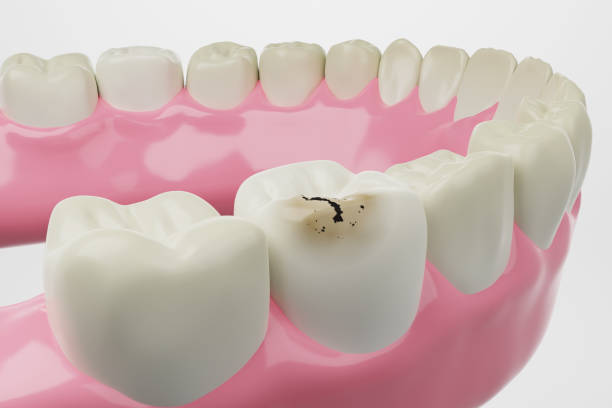
Tooth-colored fillings offer many advantages that make them a popular choice among patients.
Perhaps the most obvious benefit is their natural appearance. Dental fillings blend seamlessly with your teeth, ensuring a beautiful and confident smile. This aesthetic advantage can significantly boost your self-esteem and overall satisfaction with your appearance.
Modern composite resins are incredibly strong and durable. With proper care, tooth-colored fillings can last for many years. This durability, combined with their aesthetic appeal, makes them a long-term investment in your oral health.
Tooth-colored fillings can repair many dental issues, from minor cavities to chipped or cracked teeth. This versatility makes them a valuable tool in the dentist's arsenal for restoring dental health and function.
Getting a tooth-colored filling is a relatively straightforward treatment.
During your initial consultation, our dentist at Al Care Dental will assess your oral health, identify any cavities, and create a personalized treatment plan. We'll also select the perfect shade of filling to complement your natural smile.
The dentist will use a dental drill to remove the decayed portion of the tooth. The tooth is then shaped to create a proper fit for the filling.
The composite resin material is carefully placed in the prepared cavity. The dentist layers and shapes the material to match the contours of your tooth.
To solidify the composite resin, the dentist employs a special curing light. Subsequently, the filling is meticulously shaped and polished to achieve a seamless, natural appearance.
The final step involves polishing the filling to create a seamless blend with your teeth. This enhances the restoration's appearance and feel.
Proper care is essential for the longevity of your tooth-colored filling.
Avoid chewing on hard foods or ice for the first few days. Sensitivity may be experienced, but it should subside gradually. Taking these precautions will help protect your new filling and promote healing.
Practice good oral hygiene by brushing twice daily, flossing daily, and using mouthwash. Regular dental checkups are crucial for maintaining the health of your fillings and preventing new cavities.
A consistent oral hygiene routine and regular dental visits will help ensure the long-term success of your tooth-colored fillings.
Look for signs of wear, such as cracks, chips, or discoloration. If you notice any issues, schedule an appointment with your dentist promptly. Early detection of any problems can help prevent further damage and preserve the integrity of your filling.
Yes, tooth-colored fillings are safe. They are made from biocompatible materials and do not contain harmful substances. This safety factor, combined with their aesthetic and functional benefits, makes them a popular choice for patients of all ages.
With proper care, tooth-colored fillings can last for several years. However, the lifespan can vary depending on factors such as the size of the filling, your oral hygiene habits, and your bite. Regular dental checkups and good oral hygiene practices will help maximize the lifespan of your fillings.
The number of fillings, the complexity of the treatment, and the dentist's fees can all affect the overall cost. Discussing the estimated cost with your dentist before proceeding with the treatment is important.
Many dental insurance plans cover tooth-colored fillings, but it's essential to check the specifics of your policy. Understanding your insurance coverage can help you budget for the cost of your treatment.
While tooth-colored fillings may be slightly more expensive than amalgam fillings, their aesthetic benefits and durability make them a worthwhile investment in oral health and overall well-being.
Considering the long-term benefits, including improved self-confidence and oral health, many patients find tooth-colored fillings to be a valuable investment.
Tooth-colored fillings are an excellent option for children as they offer a more aesthetically pleasing alternative to amalgam fillings. This can help boost a child's self-esteem and encourage good oral hygiene habits.
Tooth-colored fillings can be used in conjunction with other cosmetic dentistry treatments to create a stunning smile makeover. This combination of treatments can dramatically improve the appearance of teeth and overall smile.
Patients with gum disease may require additional care to prevent bacteria from seeping around the filling and causing further issues. In these cases, close monitoring and professional dental cleaning are essential for optimal oral health.
At Al Care Dental, we are committed to providing exceptional dental care to our patients. Our team of experienced dentists specializes in various dental services, including tooth-colored fillings. We believe in creating a warm and welcoming atmosphere where you feel comfortable and relaxed.
We offer comprehensive dental services, focusing on prevention, diagnosis, and treatment. Our state-of-the-art technology and gentle techniques ensure a positive experience for patients of all ages.
As a token of our appreciation for choosing Al Care Dental, we offer new and existing patients a free electric toothbrush after a cleaning, exam, and X-ray. Don't wait to achieve the smile you deserve. Contact us today to schedule your appointment.

Tooth-colored fillings offer a beautiful and durable solution for repairing damaged teeth. They are aesthetically pleasing, biocompatible, and versatile. By choosing tooth-colored fillings, you can improve your smile's appearance while maintaining optimal oral health.
If you have cavities or damaged teeth, consider tooth-colored fillings as a modern and effective option. They can enhance your smile's natural beauty and restore your confidence.
Schedule a live appointment with your dentist at Al Care Dental to discuss your options and determine if tooth-colored fillings are right for you. Taking the first step towards a healthier and more beautiful smile is an investment in your overall well-being.
Dealing with an exposed tooth nerve can be intensely discomforting, affecting everything from eating to daily comfort.
This comprehensive Al Care Dental guide aims to delve into the intricacies of dental health, focusing particularly on the causes, symptoms, diagnosis, and treatment options available for an exposed tooth nerve.
Understanding the structure of teeth is crucial in comprehending how an exposed tooth nerve can occur. Teeth are complex structures composed of several layers:
Understanding these layers helps understand how an exposed tooth nerve can develop when these protective layers are compromised.
Each part of the tooth plays a vital role in maintaining dental health:
Maintaining good dental health is not just about a bright smile; it’s crucial for overall well-being. Poor dental hygiene can lead to various dental issues, including an exposed tooth nerve, significantly impacting daily life and comfort.
An exposed tooth nerve, also known as dental pulp exposure, occurs when the protective layers of the tooth—enamel and dentin—are compromised, exposing the sensitive pulp to external stimuli. This exposure can result in pain, sensitivity, and potential complications if left untreated.
One of the primary causes of an exposed tooth nerve is dental decay, commonly known as cavities. When plaque and bacteria accumulate on the tooth surface, acids can erode the enamel and dentin, eventually reaching the pulp and exposing the nerve.
Physical trauma or injury to the tooth, such as a blow to the face or a fall, can result in fractures or cracks that expose the underlying nerve tissue.
Gum recession, which can result from conditions like periodontal disease or vigorous brushing, exposes tooth roots.
As gums recede, the protective layers of enamel and dentin that normally shield the roots become insufficient, thereby heightening the likelihood of nerve exposure.
Abrasive brushing techniques, frequent consumption of acidic foods and beverages, or conditions like bruxism (teeth grinding) can wear down the enamel over time, exposing the underlying dentin and nerve tissue.
The most common symptom of an exposed tooth nerve is sharp, sudden pain when consuming hot, cold, sweet, or acidic foods and beverages. The pain can be severe and may radiate to other parts of the head and face.
Visual indicators of an exposed tooth nerve may include visible holes or pits in the affected tooth, cracks in the enamel, or dark spots indicating decay that have reached the pulp.
Continuous throbbing pain or discomfort, even without external stimuli, can indicate an exposed nerve that requires immediate attention from a dentist.
Dentists conduct a thorough clinical examination to assess the condition of the affected tooth. They inspect for visible signs of decay, cracks, or damage to the enamel and dentin.
X-rays and other imaging techniques are crucial for diagnosing an exposed tooth nerve. They reveal the extent of damage, the proximity of decay to the pulp, and any fractures or structural issues that may not be visible during a clinical exam.
If you experience persistent pain or sensitivity or notice visual signs of tooth damage, it is essential to seek prompt dental care. Early intervention can prevent further damage and alleviate discomfort.
Rinsing your mouth with warm saltwater helps reduce inflammation and alleviate pain associated with an exposed tooth nerve.
Applying a cold compress or ice pack to the outside of the cheek over the affected tooth can numb the area and reduce pain and swelling.
Over-the-counter pain relievers such as ibuprofen or acetaminophen offer temporary relief from tooth nerve pain and reduce inflammation.
In cases of severe pain or discomfort, dentists may provide emergency treatments such as:
Dental fillings restore teeth' structures after decay removal. They seal off the exposed nerve and prevent further bacteria from entering the tooth.
Root canal therapy is recommended when a tooth's pulp becomes infected or exposed due to decay or injury. The infected nerve tissue is removed during this procedure, and the root canal is cleaned, filled, and sealed.
Dental crowns or caps cover and protect weakened or damaged teeth, including those with exposed nerves. They provide a strong outer shell that restores function and protects against further damage.
Gum grafting surgery may be recommended in cases where gum recession has exposed the roots of teeth and nerves. This procedure involves taking tissue from another part of the mouth or using donor tissue to cover the exposed roots, protecting them from further exposure and reducing sensitivity.
Maintaining excellent oral hygiene is the foundation of preventing dental issues, including an exposed tooth nerve.
Use a soft-bristled toothbrush and gentle brushing techniques to clean teeth and gums without damaging enamel or gums.
Incorporate fluoride mouthwash into your daily oral hygiene routine to strengthen enamel and reduce the risk of decay.
Routine dental visits allow dentists to detect and treat dental issues early, preventing them from progressing to more severe conditions like an exposed tooth nerve.
Wearing a mouthguard during sports protects teeth from trauma and reduces the risk of injuries that can lead to exposed tooth nerves.
Avoid chewing on hard foods or using teeth as tools to prevent damage to enamel and reduce the risk of cracks or fractures that could expose nerves.
An exposed tooth nerve provides a direct pathway for bacteria to reach the pulp and cause infection. Untreated infections can spread to the surrounding tissues and even into the bloodstream, posing serious health risks.
Abscesses can form at the root of a tooth with an exposed nerve, causing severe pain and swelling and potentially requiring emergency dental care and antibiotics.
In severe cases where an exposed tooth nerve is left untreated, the tooth may become irreversibly damaged and require extraction to prevent further complications.
Fluoride is a mineral that strengthens enamel, making teeth more resistant to acid attacks from plaque bacteria and sugary foods.
Drinking fluoridated water is one of the most effective ways to incorporate fluoride into your dental care routine. It promotes stronger teeth and reduces the risk of decay.
Choose fluoride toothpaste and mouthwash recommended by dental professionals to provide additional protection against tooth decay and enamel erosion.
Located in Leduc, Alberta, Al Care Dental is committed to providing compassionate and comprehensive dental care. Our motto, Dentistry from the Heart, reflects our dedication to treating every patient like family.
Whether you need routine dental care, emergency services for an exposed tooth nerve, or cosmetic treatments, our experienced team is here to help. New and existing patients receive a complimentary electric toothbrush after a cleaning, exam, and X-ray.
Schedule your appointment today and experience the difference at Al Care Dental in Leduc. Give us a call!
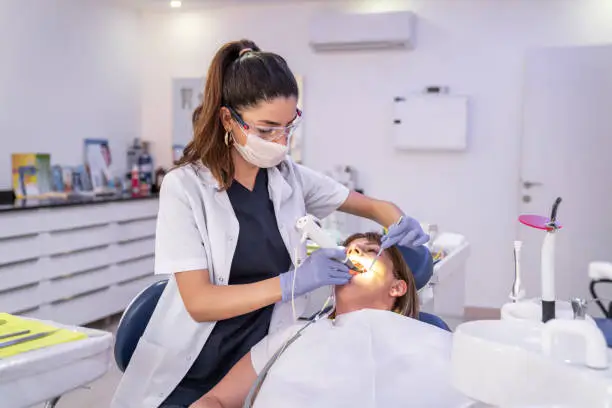
Dealing with an exposed tooth nerve requires prompt attention and professional dental care at Al Care Dental Health to prevent further complications and preserve dental health.
By understanding the causes, symptoms, and treatment options available, individuals can take proactive steps to maintain a healthy smile and overall well-being.
Tooth roots are the foundation of dental anatomy. They are vital for structural support and overall health. When exposed, they can lead to a host of issues, ranging from sensitivity to serious infections.
In this comprehensive guide from Al Care Dental, we'll explore what it means to have tooth roots exposed, how to recognize the symptoms, the causes behind this condition, and effective treatment options. We’ll also provide tips for preventing this problem and maintaining optimal oral hygiene.
To truly understand the implications of exposed tooth roots, we need to start with the basics: what are tooth roots, and why are they so crucial to our dental health?
Tooth roots are located below the gum line, anchoring each tooth securely in place within the jawbone. They are vital for stabilizing teeth and facilitating the transfer of nutrients from the jawbone to the tooth.
The enamel and cementum serve as protective barriers for the tooth roots. Enamel covers the crown of the tooth, while cementum shields the roots. When these protective layers are compromised, the roots become vulnerable to external stimuli and potential damage.
Identifying exposed tooth roots early can prevent more severe complications. Here’s how you can recognize this condition:
Look for signs such as visible yellowish dentin near the gum line, longer-looking teeth, and noticeable gaps between the gums and teeth.
Several symptoms can indicate that your tooth roots are exposed:
Sensitivity to hot, cold, sweet, or acidic foods and beverages is a common indicator of exposed roots. This occurs because the dentin layer, which contains tiny tubules leading to the tooth’s nerve, is no longer protected.
Discomfort or extreme tooth pain while chewing can signal exposed roots, as the protective layers are no longer buffering the pressure exerted on the teeth. This sensitivity can significantly affect eating habits and overall quality of life.
Noticeable gum recession exposes more of your tooth root. This means the gum tissue that normally surrounds your teeth has shrunk back.
Understanding what leads to exposed tooth roots can help in both prevention and treatment. Several factors can contribute to this dental issue:
Periodontitis, a severe gum infection, is a major cause of gum recession and exposed roots. If left untreated, this condition can destroy the bone-supporting teeth, ultimately resulting in tooth loss.
Plaque buildup hardens into tartar, which harbors bacteria that cause inflammation and recession of the gums, eventually leading to exposed roots. The longer plaque and tartar remain on your teeth, the more damage they can do to the gums and underlying bone.
Brushing your teeth too hard or using a hard-bristled toothbrush can wear down the enamel and cause gum recession, exposing the roots. This aggressive technique not only damages the gums but also increases tooth sensitivity and the risk of cavities.
Our bodies undergo hormonal shifts throughout life, especially during pregnancy, menopause, and puberty. These changes can make gums more sensitive and vulnerable to receding, which can expose tooth roots.
Several other factors can contribute to exposed tooth roots:
If left untreated, exposed tooth roots can lead to several serious dental issues:
Timely diagnosis and appropriate treatment are crucial for managing exposed tooth roots effectively.
Prevention is always better than cure. Here’s how you can prevent exposed tooth roots:
Use a soft-bristled toothbrush and gentle brushing techniques. Floss daily to remove plaque from areas your toothbrush can’t reach. Replace your toothbrush every three to four months or sooner if the bristles are frayed.
Visit your dentist regularly for checkups and professional cleanings to maintain optimal oral health. Early detection of dental issues can prevent more serious problems and ensure your gums remain healthy.
A well-rounded diet abundant in vitamins and minerals promotes strong gums and teeth. Minimize the intake of sugary and acidic foods and beverages. Incorporate plenty of fruits, vegetables, and dairy products to support overall dental health.
Certain lifestyle choices can have a significant impact on your gum health:
High stress can lead to habits like teeth grinding and clenching, which contribute to gum recession and exposed roots. Practice stress management techniques such as meditation and exercise to help fix teeth grinding.
Using tobacco products, including smoking, can cause gum disease and gum recession. By stopping these habits, you can greatly enhance your oral health.
At Al Care Dental, we are committed to providing exceptional dental care for the whole family. Our motto, "Dentistry from the Heart," reflects our dedication to treating every patient like family.
If you’re experiencing issues with exposed tooth roots or any other dental concern, our experienced team is here to help. We offer a range of dental services, from preventative care to advanced treatments, ensuring you receive the best care possible.
Plus, new or existing patients receive a free electric toothbrush after a cleaning, exam, and X-ray. Call now to schedule your next appointment and take the first step towards a healthier smile.
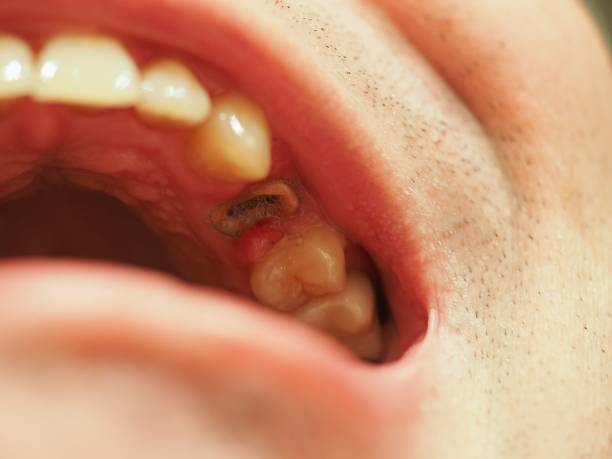
Early detection and treatment of exposed tooth roots are vital for maintaining a healthy smile. By practicing good oral hygiene, making informed lifestyle choices, and seeking regular dental care, you can prevent this condition and enjoy a lifetime of dental health.
Remember, your smile is worth the effort—prioritize your oral health today.
Toothaches are intrusive and persistent, often causing significant discomfort and disrupting daily activities. While the pain is frequently attributed to cavities, it can sometimes originate from deeper within the tooth's pulp—the chamber containing nerves and blood vessels.
In such cases, a root canal procedure may be necessary to address the underlying issue and provide relief.
A root canal by Al Care Dental saves the tooth by removing the infected pulp. This minimally invasive procedure can be a lifesaver, but a key question remains: How long does a root canal last? This guide explores its lifespan and how to maximize its success.
A root canal is a dental procedure aimed at preserving an infected tooth. When bacteria penetrate through deep cavities or cracks, an infection can develop.
To prevent the need for tooth extraction, a dentist performs a root canal. This process involves extracting the infected tissue from the chamber, meticulously cleaning the root canals of the tooth, and sealing the area with a filling.
So, how do you know if you need a root canal? Throbbing toothaches are a classic symptom, but sometimes the pain is more subtle, like a dull ache or sensitivity to hot and cold. Other signs include:
If you experience any of these symptoms, a visit to Al Care Dental is crucial. Early diagnosis and treatment can often prevent the need for a root canal. However, if the infection is advanced, a root canal becomes the best course of action to save the tooth and prevent the infection from spreading.
The good news is that root canals are performed with local anesthesia, keeping you comfortable throughout. The dentist will create a small opening in the tooth's crown, carefully remove the infected pulp, and thoroughly clean and disinfect the root canals.
To seal the canals and protect the tooth, a temporary filling is placed. In most cases, a follow-up appointment is needed for a permanent crown. This crown is crucial for restoring the tooth's strength and function, especially for molars that take on a lot of chewing pressure.
The good news is that root canals are highly successful procedures. Studies show that with proper care, a root canal-treated tooth can last for 10 to 15 years on average—in some cases, it can even last a lifetime!
However, several factors can influence a root canal's lifespan:
As mentioned earlier, a dental crown placed on a root canal-treated tooth significantly improves its lifespan. The crown strengthens the tooth's structure, protects it from fractures, and helps distribute chewing forces evenly.
Studies show that teeth with crowns after root canals can last up to 20 years or even longer!
While root canals are highly successful, there's always a small chance that retreatment might become necessary down the line. This could happen due to:
Make sure to keep up with your routine dental visits and cleanings at Al Care Dental in Leduc, AB! Visiting your dentist twice a year for comprehensive cleanings and examinations is crucial. These appointments allow your dentist to monitor your treated tooth, detect any possible issues at an early stage, and address them before they escalate into significant problems.
While a root canal-treated tooth can function normally, it's essential to be mindful of what you chew with it. Avoid using the treated tooth for foods that are excessively hard or chewy, such as nuts, hard candy, or raw vegetables. These foods can put undue stress on the tooth and increase the risk of fractures or chipping.
If you experience any of the following symptoms after a root canal, it's crucial to see your dentist promptly:
The cost of a root canal can vary depending on the complexity of the procedure, the location of the tooth, and your dentist's fees. Generally, root canals are more expensive than fillings but significantly less expensive than tooth extraction and implant placement.
If a root canal isn't the best course of action for your specific situation, your dentist might recommend alternative treatments. In some cases, an antibiotic regimen might be enough to control the infection. In severe cases where the tooth is too damaged, extraction might be necessary.
However, advancements in dental technology have made root canals a highly successful option for saving teeth in most situations.
Looking for exceptional dental care in Leduc, AB? At Al Care Dental, we're passionate about providing our patients with comprehensive and compassionate dentistry.
Our team of skilled dentists utilizes state-of-the-art technology and techniques to ensure the best possible outcomes for all your dental needs, including root canal procedures.
We understand that the prospect of a root canal can be daunting. That's why we prioritize patient comfort and communication throughout the entire process. We'll thoroughly explain the procedure, address any concerns you might have, and ensure you feel comfortable and informed every step of the way.
Don't let tooth pain hold you back from enjoying life. Contact Al Care Dental today to schedule an appointment and discuss your options. We're confident we can help you achieve a healthy, beautiful smile that lasts.
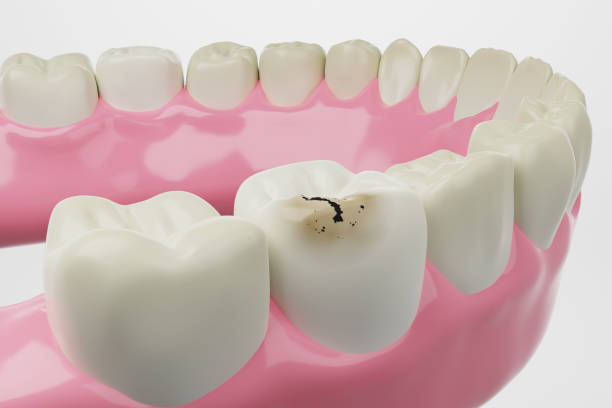
Unlike a permanent fix, a root canal offers a long-lasting solution for a damaged tooth. With proper care, a root canal-treated tooth can function and thrive for many years, potentially even a lifetime.
If you're experiencing symptoms that suggest you might need a root canal, don't hesitate to seek professional help. Early diagnosis and intervention are key to a successful outcome.
For exceptional dental care in Leduc, AB, book an appointment and look no further than Al Care Dental. Our team of skilled dentists utilizes state-of-the-art technology and techniques to ensure the best possible outcomes for all your dental needs, including root canal procedures.
A chipped front tooth can be a confidence-crusher, especially if the damage seems serious. But what if the issue goes beyond a cosmetic concern and delves deeper, potentially requiring a root canal?
This scenario, though unnerving, is treatable. That's where root canals for front teeth come in. This guide will help you understand the ins and outs of this procedure. We'll explore the signs that indicate you need a root canal, delve into the process itself, and address any anxieties you might have.
A root canal is a dental treatment aimed at preserving a tooth that has been infected or extensively damaged. While people commonly think of root canals for molars, they can also be required for front teeth. Even though front teeth are smaller, they share a comparable internal structure with their posterior counterparts.
Front teeth house a soft core called the pulp, which contains nerves and blood vessels. If this pulp becomes infected due to deep decay, trauma, or gum disease, it can cause significant pain and swelling. Similar to a root canal on a back tooth, a front tooth procedure at Al Care Dental involves numbing the area for comfort.
The dentist makes a tiny opening to reach the infected pulp area and carefully eliminates the compromised tissue. Afterward, the root canals are cleaned and sterilized completely. Subsequently, a unique material is used to fill the canals, and the tooth is sealed to ward off future infections.
Several signs can indicate the need for a root canal on a front tooth. Here are some key ones to watch out for:
If you experience any of these symptoms, it's crucial to schedule an appointment with your dentist for a proper diagnosis. Early intervention is key to saving your tooth and preventing further complications.
While a root canal might seem daunting, it's important to remember it's a highly successful procedure that can save your tooth and restore your smile.
Here are some additional factors to consider:
The price of a root canal for a front tooth can fluctuate based on aspects such as the intricacy of the procedure and your dental insurance plan. Typically, root canals on front teeth are more affordable than those on molars because of their less complex root system.
However, it's always best to consult with your dentist for a personalized estimate. Many dental offices offer flexible payment plans to help manage the cost.
Although the majority of patients feel only slight discomfort following a root canal on a front tooth, it's common to experience some soreness or sensitivity for a few days. Using over-the-counter pain relievers and applying a cold pack to the affected area can help alleviate these symptoms.
Your dentist will provide specific instructions on aftercare, including proper brushing and flossing techniques around the treated tooth. Maintaining good oral hygiene is crucial to preventing further infection.
Front teeth play a significant role in your smile's aesthetics. Since a root canal removes the pulp, the tooth can become brittle over time. To strengthen the tooth and improve its appearance, a dental crown is often recommended following a root canal on a front tooth.
Crowns are custom-made caps that are bonded to the remaining tooth structure, restoring its strength and aesthetics. Your dentist can discuss various crown materials and colors to ensure a natural-looking result.
With proper care and regular dental checkups, a root canal on a front tooth can last for many years, potentially even a lifetime.
Brushing and flossing twice daily, maintaining a healthy diet, and avoiding habits that can chip or crack the tooth (like chewing on hard objects) are all crucial for the long-term success of the treatment.
In some rare cases, depending on the severity of the damage or infection, an extraction might be the only option. However, whenever possible, dentists prioritize saving the natural tooth through a root canal.
Early detection of a potential root canal issue is crucial for a successful outcome. Regular dental checkups and cleanings allow your dentist to identify any signs of decay or damage before they progress to a point requiring a root canal.
Think of it like catching a small tear in your favorite shirt before it becomes a gaping hole!
While some may view root canals on front teeth with apprehension, these procedures offer several distinct advantages:
Front teeth play a crucial role in both function and aesthetics. A root canal allows you to retain your natural tooth structure, maintaining a natural-looking smile and optimal biting function.
A healthy smile can significantly boost your confidence. By saving your front tooth from extraction, a root canal helps you maintain a smile you're proud to share.
Leaving an infected front tooth untreated can lead to further complications, potentially impacting neighboring teeth and overall oral health. A root canal addresses the infection at the source, promoting long-term oral health.
With proper care, a root canal-treated front tooth can be quite durable. The filling material and, in some cases, a dental crown can provide long-lasting strength and functionality for your tooth.
A root canal is a more cost-effective long-term solution for replacing a missing front tooth than an implant or bridge.
At Al Care Dental, our team of dedicated dentists in Leduc, AB, understands the importance of healthy teeth, especially your front ones.
We offer a comprehensive range of dental services, including root canals, to address your dental needs with compassion and expertise. Our motto, "Dentistry from the Heart," reflects our commitment to providing personalized care that prioritizes your comfort and well-being.
If you suspect you might need a root canal on a front tooth, don't hesitate to schedule a consultation with Al Care Dental. Early diagnosis and treatment are key to saving your tooth and preventing further complications.
Take the next step and schedule an appointment today.

Thanks to advancements in dental technology and the expertise of qualified dentists like those at Al Care Dental, root canals offer a highly successful approach to saving teeth. By prioritizing early detection, choosing the right dentist, and following proper aftercare instructions, you can ensure a healthy and beautiful smile for years to come.
Remember, a healthy smile is not just about aesthetics; it's about your overall well-being. Don't let a potentially treatable issue with your front tooth linger. Take control of your oral health and schedule your consultation with Al Care Dental today!
We look forward to helping you achieve a healthy and confident smile!
A dental abscess can be an excruciatingly painful condition that requires prompt attention and proper care. While seeking professional dental treatment is crucial, there are several self-care measures individuals can take to alleviate symptoms, manage discomfort, and promote healing at home. In this comprehensive guide, we will delve into effective self-care strategies for dental abscesses, highlighting tips, remedies, and preventive measures.
A dental abscess occurs when there is a bacterial infection in the tooth or surrounding gum tissue. This infection leads to the formation of a pocket of pus, causing pain, swelling, and inflammation. Common causes of dental abscess include poor oral hygiene, untreated cavities, and gum disease.
Symptoms of a dental abscess may include the following:
If left untreated, dental abscesses can lead to serious complications, including the spread of infection to other parts of the body.
Diagnosing a dental abscess involves a dental examination and sometimes X-rays to assess the extent of the infection. Treatment typically includes:
Drainage, performed through a small incision, is crucial for removing pus and reducing pressure within the abscessed area, facilitating the body's natural healing process. Antibiotics are often prescribed to target the underlying infection and prevent its spread, aiding in the complete eradication of bacteria and reducing the risk of complications.
Root canal therapy is a common treatment option for abscesses that have affected the tooth's pulp, involving the removal of infected tissue and sealing the canal to prevent reinfection. In severe cases where the tooth cannot be salvaged, tooth extraction may be necessary to prevent further spread of infection and alleviate symptoms.
Over-the-counter pain relievers and cold compresses can provide temporary relief from discomfort while undergoing treatment. Early intervention is vital to prevent potential complications, so seeking prompt dental care is essential if a dental abscess is suspected.
While professional treatment is essential for managing a dental abscess, there are self-care measures you can take to alleviate symptoms and promote healing at home:
Ease discomfort by using non-prescription painkillers like ibuprofen or acetaminophen to alleviate pain and swelling linked to the dental abscess. Using a cold compress on the impacted area can also provide temporary relief from discomfort.
Keep your oral health in check by softly brushing your teeth two times daily using a toothbrush with soft bristles and fluoride toothpaste. Floss daily to remove food particles and plaque from between teeth and along the gumline. Rinsing your mouth with a warm saltwater solution several times a day can help reduce inflammation and promote healing.
Adjust your diet to include soft, easy-to-chew foods that won't irritate the abscess. Avoid hard, crunchy, or chewy foods that can exacerbate discomfort. Stay hydrated by drinking plenty of water throughout the day to keep your mouth moist and aid in the healing process.
Explore natural remedies such as the following:
Containing eugenol, an anesthetic, and antibacterial agent, clove oil can relieve toothache and inflammation in dental abscesses. Apply a small amount directly to the affected area or mix with a carrier oil like olive oil for application.
With antimicrobial and anti-inflammatory properties, garlic is a popular remedy for dental abscesses. Apply crushed garlic directly to the affected area or chew on a clove to release its healing compounds.
A warm salt water rinse reduces inflammation, eases pain, and aids healing of dental abscesses. Dissolve half a teaspoon of salt in warm water, swish around the mouth for 30 seconds, and repeat several times daily.
Peppermint and chamomile teas offer natural pain relief and anti-inflammatory benefits. Brew as directed, cool slightly, and swish around the mouth or use as a mouthwash.
Using a cold compress numbs pain and reduces swelling in dental abscesses. Wrap ice cubes in a cloth and apply to the cheek near the affected area for 15-20 minutes at a time. Repeat as needed for relief.
Refrain from smoking or using tobacco products, as they can hinder the healing process and increase the risk of complications. Limit consumption of sugary foods and beverages, as they can contribute to tooth decay and worsen dental abscess symptoms.
By incorporating these self-care measures into your daily routine, you can effectively manage a dental abscess at home while awaiting professional treatment. However, it's essential to seek prompt dental care if symptoms persist or worsen to prevent further complications and ensure optimal oral health.
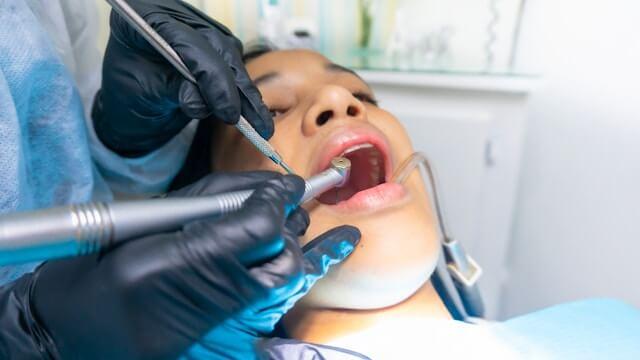
To prevent dental abscesses and related complications:
By incorporating these prevention strategies into your daily routine, you can significantly reduce your risk of developing dental abscesses and other oral health problems. Remember that maintaining good oral hygiene and making healthy lifestyle choices are essential for preserving your smile and overall well-being.
While self-care measures can provide relief from dental abscess symptoms, it's essential to seek professional help if symptoms persist or worsen. Contact your dentist if you experience:
At Al Care Dental, we prioritize preventive dental care to help you avoid the discomfort of dental abscesses. Our experienced team offers comprehensive check-ups, cleanings, and personalized treatment plans to maintain your oral health. With our approach, you can say goodbye to dental abscesses for good.
We emphasize the importance of proper oral hygiene, including brushing, flossing, and a balanced diet, to prevent dental abscesses. Additionally, we provide custom-fitted mouthguards for those at risk due to contact sports or teeth grinding. At Al Care Dental, we're committed to your well-being and offer tailored solutions to meet your dental needs.
Take proactive steps towards a healthier smile by scheduling a consultation with Al Care Dental today. Let us help you prevent dental abscesses and enjoy optimal oral health.
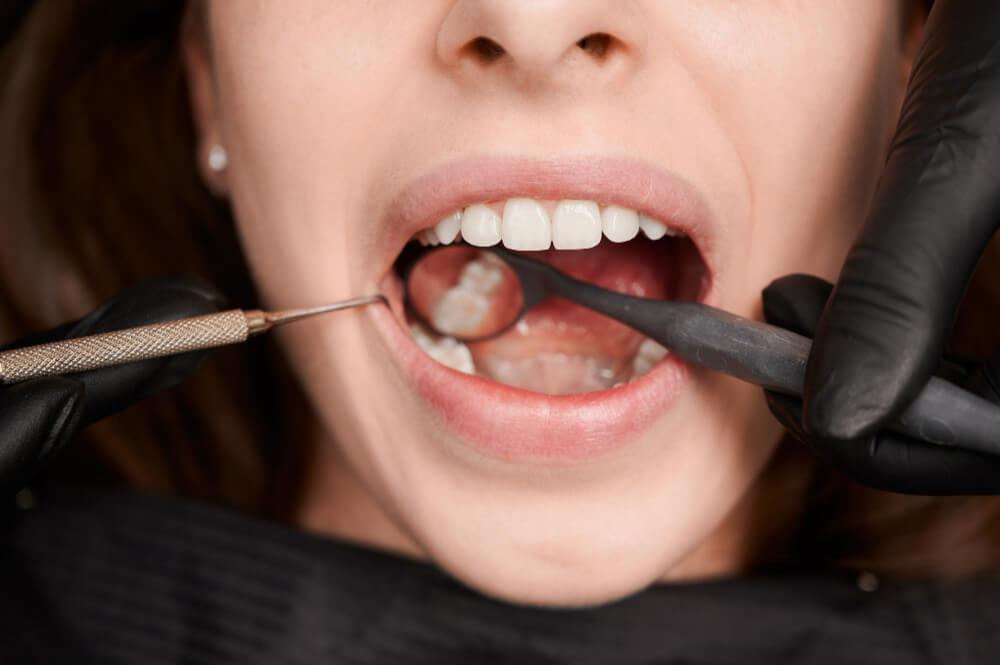
Dental abscesses can cause significant pain and discomfort, but effective self-care measures can help manage symptoms and promote healing. By following proper oral hygiene practices, making dietary adjustments, and utilizing home remedies, you can alleviate pain and prevent complications associated with dental abscesses.
However, if symptoms persist or worsen, it's crucial to seek professional dental care promptly to prevent further complications. Remember, dental abscess self-care is essential for maintaining oral health and overall well-being.
Stress can weaken the immune system and increase susceptibility to infections, including dental abscesses. Chronic stress may also lead to teeth grinding or clenching, which can damage tooth enamel and increase the risk of abscess formation.
While maintaining a balanced diet is crucial for oral health, certain dietary supplements may also support immune function and reduce the risk of dental abscesses. Vitamin C, for example, plays a vital role in collagen production and immune function, which can aid in preventing oral infections.
Poor posture, particularly when sitting for long periods with the head forward and shoulders slouched, can increase pressure on the jaw and lead to teeth grinding or clenching. This repetitive behavior can wear down tooth enamel and create conditions conducive to dental abscess formation.
Embarking on the journey to a brighter, more confident smile through veneers is an exciting decision. However, before you take that step, unraveling the intriguing world of veneer costs is crucial. In this in-depth article, we will delve into the intricate factors influencing the price of veneers, the wide spectrum of average costs, and insightful tips to navigate your veneer investment wisely.
The cost of veneers can vary significantly depending on several key factors. In this section, we will explore these factors in detail to help you understand why veneer prices can differ from one dental practice to another.
The selection of materials stands out as a significant factor influencing veneer expenses. Veneers are typically crafted from two primary materials: porcelain and composite resin.
Porcelain veneers tend to come at a higher cost than their composite resin counterparts due to their impressive durability, natural appearance, and resistance to staining. On the flip side, composite resin veneers offer a more budget-friendly alternative, although they may not have the same longevity as porcelain veneers.
Furthermore, the cost of veneers can fluctuate based on the quality and brand of the chosen material. High-quality porcelain veneers usually occupy the upper end of the pricing spectrum. When engaging in discussions with your dentist about veneers, it's crucial to gain a clear understanding of the available material options and their associated expenses.
Another significant factor impacting veneer costs is your geographic location. Dental costs can vary significantly between regions and countries. Larger metropolitan areas typically have higher costs for dental procedures, including veneers, due to increased overhead and demand for cosmetic dentistry services.
Additionally, local economic factors play a role in pricing. Regions with higher living costs typically experience elevated dental care expenses. To obtain a precise assessment of veneer costs in your vicinity, it's recommended to reach out to local dentists and seek price quotations.
The experience and reputation of the dentist performing the procedure can also influence the cost of veneers. Experienced and highly regarded cosmetic dentists often charge higher fees for their expertise and the quality of their work.
While it may be tempting to opt for a cheaper dentist, it's crucial to balance cost considerations with the skill and experience of the practitioner. Your smile is a valuable asset, and choosing an experienced dentist can ensure the best possible outcome.
The total cost can also be influenced by the quantity of veneers you need. Some individuals might find that a single veneer suffices to address a particular cosmetic concern, while others may choose a full smile transformation with multiple veneers. Several dentists provide package offers or discounts for patients seeking multiple veneers, potentially lowering the cost per veneer.
In this section, we'll break down the typical prices for veneers. Keep in mind that these are general estimates and can vary based on factors we discussed earlier.
The national average cost of veneers in the United States typically falls in the range of $800 to $2,500 per veneer. However, this figure can be higher or lower depending on your location and the factors previously discussed. Porcelain veneers tend to be on the higher end of this range, while composite resin veneers are generally more affordable.
To provide a more detailed understanding of veneer costs, let's break down the average prices for different materials:
Compared to other cosmetic dental procedures like teeth whitening, dental bonding, or orthodontic treatments, veneers are on the higher end of the price spectrum. However, the investment can be well worth it for individuals seeking a long-lasting and dramatic transformation of their smile.
In addition to the base cost of veneers, there are several additional expenses and fees that should be considered when planning for this cosmetic dental procedure.
Most dentists charge a consultation fee for the initial assessment and discussion of your veneer treatment plan. This fee typically ranges from $50 to $200, depending on the dental practice. During the consultation, your dentist will evaluate your oral health, discuss your aesthetic goals, and provide a personalized treatment plan.
Before the actual veneer placement, some diagnostic and preparatory procedures may be necessary. These can include dental X-rays, impressions, and teeth cleaning. These additional steps are essential for ensuring that your veneers fit correctly and provide the desired results. The cost of these procedures can vary but generally ranges from $100 to $500.
Like natural teeth, veneers require regular maintenance to ensure their longevity and appearance. Routine dental check-ups, cleanings, and potential repairs or replacements should be factored into your long-term budget. Depending on your policy, dental insurance may cover some of these maintenance costs.
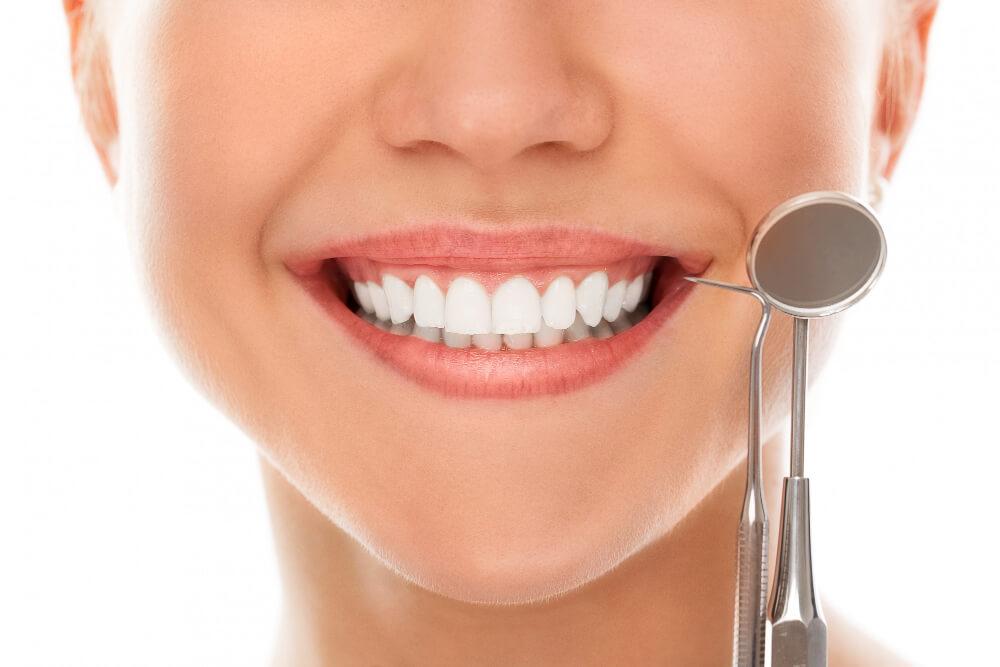
After examining veneer costs, it's vital to weigh the advantages when making an informed decision.
While pricier, veneers offer comprehensive benefits by simultaneously addressing multiple cosmetic concerns, such as discoloration, misalignment, and shape irregularities. In contrast, treatments like teeth whitening or dental bonding often target specific issues.
Veneers, especially porcelain ones, boast remarkable durability, lasting 10 to 20 years with proper care. Their extended lifespan can make them a cost-effective choice in the long term, reducing the need for frequent replacements.
Beyond cosmetic enhancement, veneers enhance self-confidence, self-esteem, and overall oral health. They provide a swift and effective solution for diverse dental problems, making them favored for dramatic smile transformations.
To ensure veneers fit within your budget while maintaining their quality, consider these strategies:
At Al Care Dental, we understand the importance of transparency regarding veneer costs and providing our patients with comprehensive information. Our commitment to your dental health and satisfaction drives our approach to cosmetic dentistry.
For those considering veneers, we suggest an initial consultation, allowing you to discuss your goals and receive a personalized treatment plan. Our experienced team of cosmetic dentists is dedicated to delivering exceptional results, ensuring that your investment in veneers not only enhances your smile but also boosts your confidence and overall well-being.
Explore the possibilities with Al Care Dental today and discover how veneers can transform your smile and life. Schedule your consultation now and take the first step towards a brighter, more confident you.
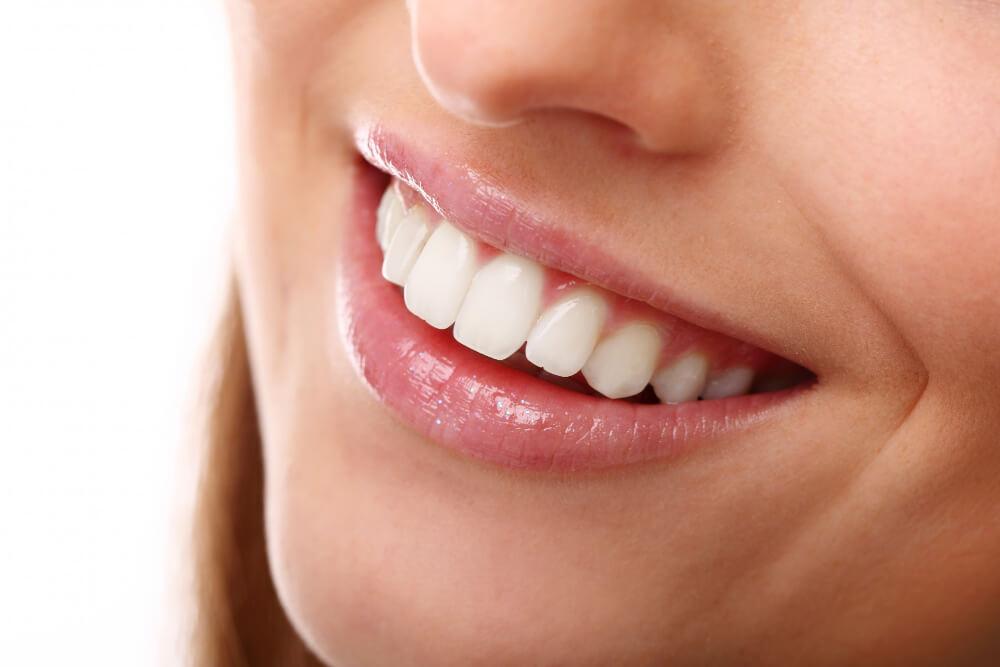
Understanding veneer costs is vital for both your finances and your smile. We've explored factors like material, location, dentist's expertise, and the number of veneers needed, guiding your decision.
Veneers offer a transformative opportunity to improve your smile and boost self-esteem. Despite the initial cost, their long-term durability and comprehensive cosmetic enhancement make them a wise investment. Prioritize finding a skilled dentist who understands your needs, and with careful planning and consideration of our tips, embark on your veneer journey with confidence for a brighter, more confident smile.
Experiencing extreme tooth pain that keeps you awake at night can be a distressing and debilitating ordeal. When the relentless throbbing and discomfort make it impossible to sleep, it's essential to understand the underlying causes, explore effective relief options, and consider professional dental care solutions like those provided by Al Care Dental.
Extreme tooth pain, often called dental or toothache, is characterized by intense and persistent discomfort in and around the affected tooth or teeth. This excruciating pain can make it challenging to perform daily activities, including sleeping. It's crucial to recognize the potential causes to address this issue effectively.
Extreme tooth pain, a lack of sleep, and dental issues are often the primary culprits behind this discomfort. Let's delve deeper into the dental issues that can cause such distress:
Extreme tooth pain can't sleep, but it's not always limited to dental issues. Other non-dental factors can contribute to or exacerbate tooth pain.
Dealing with extreme tooth pain can be challenging, especially when it disrupts your ability to sleep. Here are some strategies to help alleviate the discomfort temporarily while waiting for professional dental care:
Non-prescription analgesics like ibuprofen or acetaminophen can aid in pain and inflammation reduction. Adhere to recommended dosages and consult a healthcare professional if pain persists.
A warm saltwater gargle offers temporary relief by diminishing inflammation and eliminating oral bacteria. Mix a teaspoon of salt in warm water, swish for 30 seconds, then rinse.
Apply a cold compress to your cheek's exterior to numb discomfort and reduce swelling. Use a clean cloth or ice pack wrapped in a thin towel for 15-20 minutes at a time.
Tooth sensitivity and pain can worsen with hot or cold foods and drinks. Avoid them to minimize discomfort.
Continue gentle brushing and flossing to maintain oral hygiene and remove food particles. Be cautious when cleaning near the affected area to prevent irritation.

While the above strategies may provide temporary relief, there are situations where extreme tooth pain can't sleep, and immediate attention from a dentist is required. Here are some signs that indicate you should seek emergency dental care:
When it comes to extreme tooth pain that leaves you sleepless, Al Care Dental is your dedicated partner in finding relief and restoring your oral health. Our commitment to your well-being goes beyond traditional dental care. Here's how Al Care Dental can help you overcome extreme tooth pain:
Don't suffer in silence; let us help you find relief from extreme tooth pain. Schedule an appointment with our experienced dental professionals today.
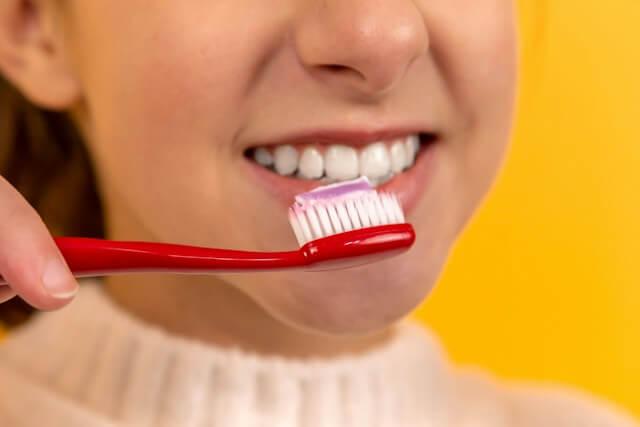
Extreme tooth pain can't sleep, but it doesn't have to rob you of your rest and well-being. Understanding the causes of tooth pain, its effects on sleep, and implementing effective strategies to manage the pain can help you get the rest you need while addressing the underlying dental issue.
Remember that professional dental care is essential to provide long-term relief and prevent future toothaches. Don't hesitate to seek emergency dental care when needed to ensure your overall health and well-being.
Yes, extreme tooth pain can have a significant impact on your overall health. It can disrupt your sleep, cause stress, and lead to poor dietary choices due to difficulty in chewing. Moreover, untreated dental issues can result in infections that may spread to other parts of your body.
Home remedies are meant for temporary relief. If your extreme tooth pain persists for more than a day or worsens, it's essential to consult a dentist promptly. Delaying professional care can lead to further complications.
Maintaining a regular dental hygiene routine is essential for pain prevention. Ensure you brush your teeth twice daily, engage in daily flossing, and follow your dentist's advice regarding the use of an antimicrobial mouth rinse. Additionally, maintaining a schedule of routine dental check-ups and cleanings plays a vital role in averting dental problems.
While traveling or in emergencies, you can still use over-the-counter pain relievers and topical numbing gels to manage the pain temporarily. Ensure you follow the recommended dosages and seek professional care immediately.
Teeth grinding, clinically referred to as bruxism, is a prevalent dental concern that impacts individuals across various age groups. This condition involves the involuntary grinding or clenching of teeth, frequently occurring during sleep.
The consistent grinding can result in a range of dental problems, such as tooth erosion, jaw discomfort, migraines, and even disturbances in sleep. In this article, we will explore the causes of teeth grinding and provide valuable insights into how to fix grinded teeth through effective strategies and treatments.
Understanding the underlying causes of teeth grinding is crucial in finding the right solution. Let's delve into some common triggers:
Early detection of teeth grinding is essential to prevent further damage. Look out for these common symptoms:
If you experience any of these signs, it's essential to address the issue promptly to avoid more severe dental problems down the road.
When dealing with teeth grinding, seeking professional assistance is often the best course of action:
Dentists are well-equipped to diagnose and treat teeth grinding. They can conduct a thorough examination and recommend appropriate solutions. Schedule regular dental check-ups to monitor your dental health and receive expert guidance.
Depending on the underlying causes, other healthcare professionals may become involved in your treatment plan. For instance, sleep specialists can address sleep-related issues contributing to teeth grinding. Collaborate with the necessary experts to address all aspects of your condition.

One of the most common and effective ways to fix grinded teeth is by using dental mouthguards. These custom-fitted devices, also known as occlusal splints or night guards, are designed to protect your teeth from the harmful effects of grinding and clenching. Here's how they work:
Using a dental mouthguard is a highly effective way to manage bruxism. It is essential to wear it consistently, especially during sleep when grinding is most common. Your dentist will provide guidance on proper care and maintenance.
Since stress and anxiety are significant contributors to bruxism, managing these factors can be an essential part of fixing grinded teeth. Here are some stress management techniques you can incorporate into your daily routine:
By managing stress effectively, you may find that your bruxism symptoms improve, leading to a reduction in teeth grinding.
In some cases, dental procedures may be necessary to fix grinded teeth, especially if there is significant damage. These procedures can help restore your teeth and improve their function and appearance. Here are some common dental treatments for teeth damaged by grinding:
Your dentist will assess your specific situation and recommend the most appropriate dental procedures to address the damage caused by teeth grinding.
In some instances, your healthcare provider may recommend medication to manage bruxism. However, medications are typically used in conjunction with other treatments and are not considered a standalone solution. Medications that may be prescribed for bruxism include:
It's essential to consult with a healthcare professional before starting any medication for bruxism, as they can provide guidance on the appropriate dosage and potential side effects.
Preventing teeth grinding in the first place and maintaining oral health are equally important:
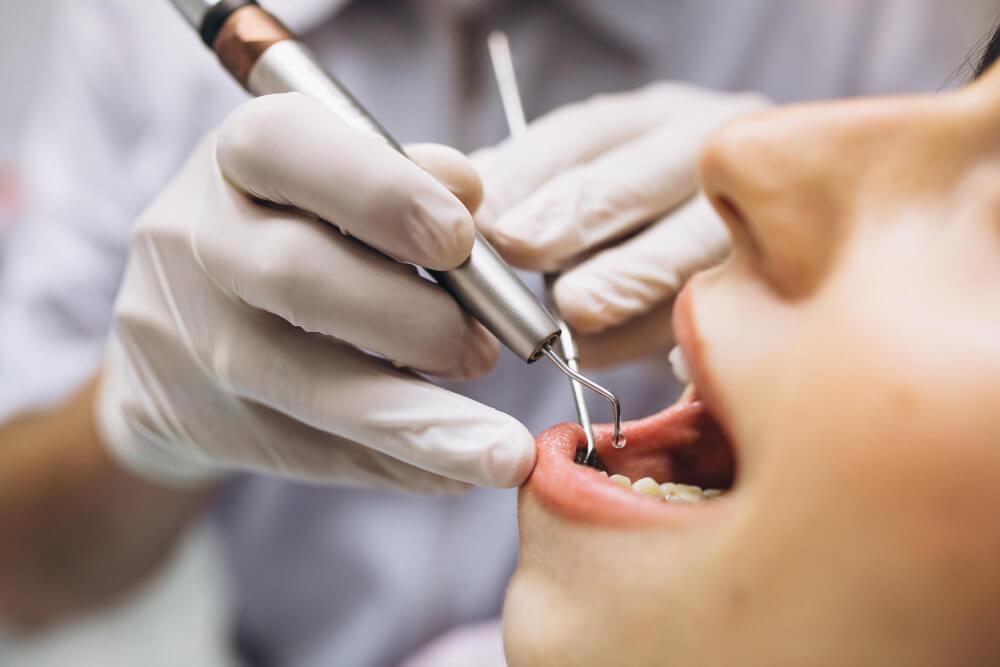
Fixing grinded teeth isn't a one-time effort. It requires ongoing care and monitoring:
At Al Care Dental, we are committed to helping you achieve and maintain optimal oral health. Our team of experienced and dedicated dental professionals understands the importance of addressing dental issues, including teeth grinding or bruxism, with precision and care. With a focus on patient-centered care, we strive to provide comprehensive solutions tailored to your unique needs.
If you're seeking professional guidance on how to fix grinded teeth and are looking for a dental clinic dedicated to your well-being, Al Care Dental is here for you. Our commitment to excellence and patient satisfaction sets us apart.
Take the first step towards a healthier smile by scheduling an appointment with us. We look forward to partnering with you on your journey to optimal oral health.
At Al Care Dental, your smile is our priority; contact us today!
Fixing grinded teeth is essential not only for the health and appearance of your teeth but also for your overall well-being. By understanding the causes of bruxism and exploring various treatment options, you can take steps to alleviate the symptoms and protect your teeth from further damage.